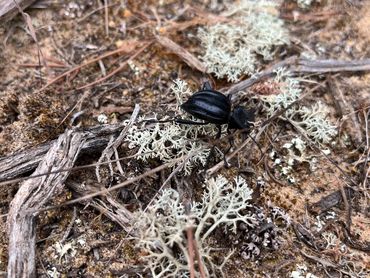MATORRAL RESILIENCE TO EXTREMES
The highly biodiverse shrublands of Doñana National Park experienced a severe drought in 2004/2005. We want to understand the demographic consequences of this event and how species demography can predict resilience to drought.
FIELDWORK NOTES
Click on the photos to find out more about the shrubs in Doñana National Park










LINKING POPULATION & COMMUNITY ECOLOGY
The demographic determinants of resilience
Our group has joined forces with Prof. Paco Lloret from CREAF to begin a long-term demographic monitoring of shrubs in Doñana National Park in southwest Spain.
The Doñana National Park is extremely vulnerable to predicted increases in temperature and decreases in rainfall. Vegetation in the study area is dominated by extensive shrublands, which experienced an extreme drought in the 2004–2005 hydrological year. Paco has been monitoring the shrub community ever since the drought event, but has thus far largely focused on measuring abundance and species composition in different plots.
To understand how demographic responses of individual species mediate community-wide responses to climate, we have set up an individual demographic monitoring scheme in 2019 for two shrubs with contrasting life histories: the dominant, long-lived Halimium halimifolium and the shorter-lived, highly reproductive Lavandula stoechas. From 2023 onward, we will include two addition species into the monitoring: the long-lived Rosmarinus officinalis and the short-lived Helichrysum picardii. The monitoring and analyses are lead by PhD student Teresa Sanchez.
We are interested in the following questions:
Is community resilience more sensitive to direct or indirect (via species interactions) effects of climate on species demography?
We see that indirect effects are key! For more details, see this talk I gave at the Ecological Forecasting Initiative 2022 Meeting.
Do we see legacy effects of the 2005 drought on current population dynamics? (Preliminary results show that there are quite a few such effects indeed)
Do we need a mechanistic understanding of species interactions to understand community resilience or are simple, static measures of the relative prevalence of demographic traits enough?

Our work has been featured in a webinar.
This website uses cookies.
We use cookies to analyze website traffic and optimize your website experience. By accepting our use of cookies, your data will be aggregated with all other user data.